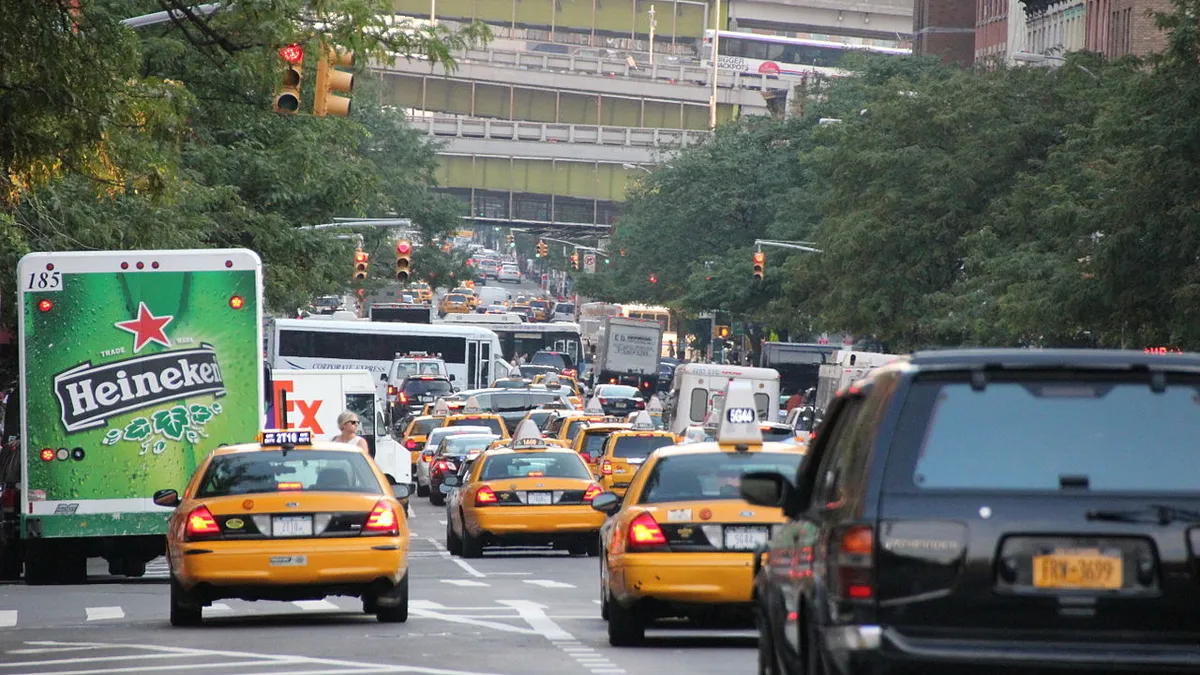Dive Brief:
- New York City could be the first city in the United States to cap the number of vehicles permitted to drive for ride-hailing apps like Uber and Lyft, The New York Times reports.
- A bill before the New York City Council would temporarily end the issuing of new for-hire vehicle licenses, except for wheelchair-accessible vehicles, while the city spends a year studying the industry. Councilors could vote on the plan as soon as August 8.
- It is the second time New York City has tried to cap ride-hailing, since a first attempt failed in 2015. This latest effort has already brought a stinging response from Uber, which released a video calling for New Yorkers to oppose the plan.
Dive Insight:
This legislation is the latest step the city has taken toward curbing the dramatic rise of the ride-hailing industry. Previously, the city had considered a minimum wage for ride-hailing drivers, and also introduced a bevy of new regulations, including charging a $2,000 fee per car and allowing drivers to work for only one company. The bill is also notable as it could create a framework for the city to limit permits on a geographic basis, meaning that ride-hailing could be banned from certain neighborhoods or boroughs.
This measure, backed by City Council Speaker Corey Johnson, comes after elected officials have raised concerns about how ride-hailing has impacted the city’s taxi industry and contributed to gridlock on city streets, something a recent study found is not helped by ride-hailing’s options for pooled rides. "Our goal has always been to protect drivers, bring fairness to the industry and reduce congestion," Johnson said in a statement. Mayor Bill de Blasio appears to be on board too, according to the Times.
Uber has railed against many regulations in cities across the country, including a ride-share tax that passed recently in Washington, DC to try and fund repairs to the city’s mass transit system. And while Uber is rebuilding its reputation under CEO Dara Khosrowshahi, it has been blamed in part for an increase in suicides by New York City taxi drivers unable to make ends meet. However, in a statement to the Times, Uber spokesman Josh Gold said the plan would "leave New Yorkers stranded while doing nothing to prevent congestion, fix the subways and help struggling taxi medallion owners."
Lyft too has raised significant concerns about the legislation. "This would take New York back to an era of standing on the corner and hoping to get a ride," a company spokeswoman told Smart Cities Dive. "Wait times would increase significantly and driver earnings and job opportunities would shrink. Worst of all, the proposals prioritize corporate medallion owners above the overwhelming majority of New Yorkers."












